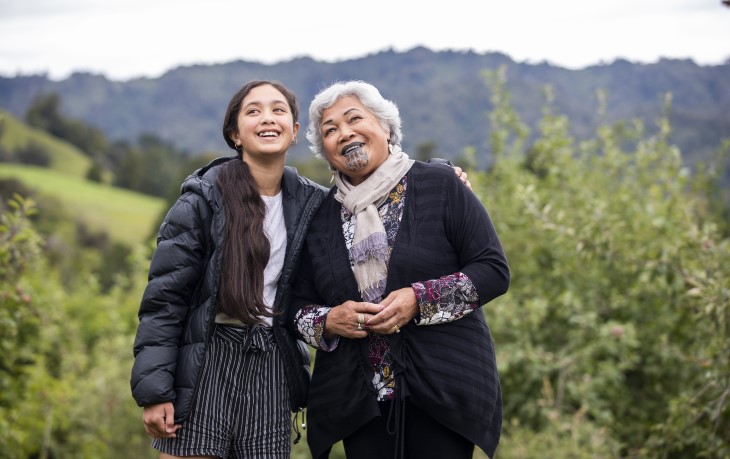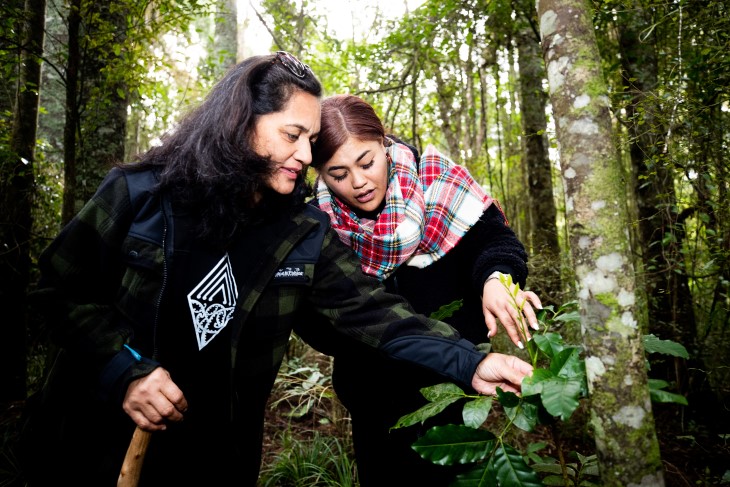“Indigenous approaches for optimal healing”
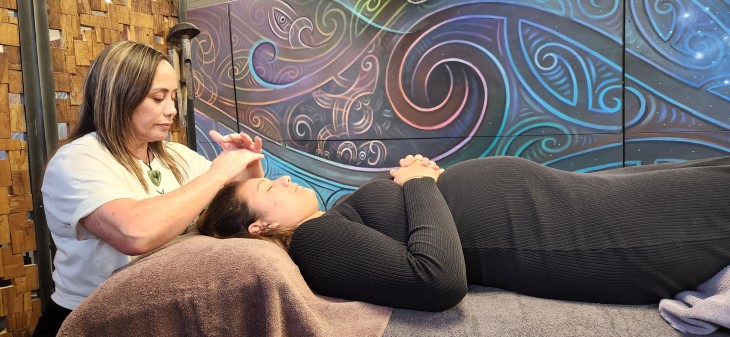
Our Innovation Fund welcomes final recipient Tū Tonu. Tū Tonu is looking to make a difference for wāhine Māori and Pasifika in the Waikato who have suffered a maternal birth injury (MBI).
We’re pleased to announce the final recipient of our Innovation Fund, Tū Tonu.
Along with the other five recipients, Tū Tonu has been awarded a grant from our Innovation Fund to deliver Raranga Takapau.
It is an indigenous response to supporting wāhine Māori and Pasifika who have been affected by a maternal birth injury.
Tū Tonu is a whare hauora Māori that promotes holistic rehabilitation pathways and whānau-centric approaches to rehabilitation that are meaningful for indigenous groups.
Raranga Takapau has been developed specifically for wāhine Māori and Pasifika in the Waikato area.
It will wrap a range of supports around māmā and their whanau. It was launched on 3 October in alignment with the maternal birth injury legislative changes.
Learn more about the maternal birth injury legislation changes
The service draws in a multi-disciplinary team primarily consisting of indigenous female practitioners and clinicians. They work collaboratively to provide a continuous care model underpinned by a Māori worldview.
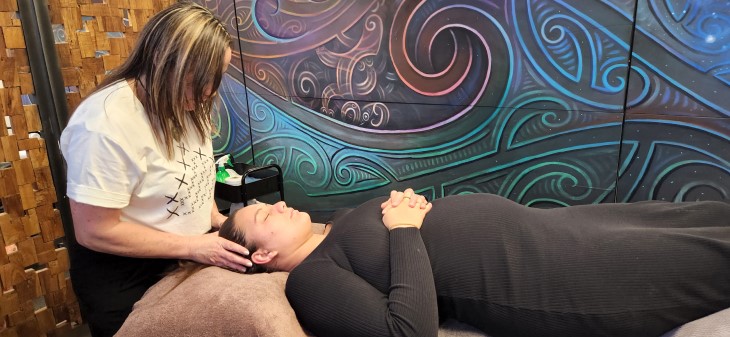
Allanah Ashwell is one of the drivers behind Tū Tonu and Kaikōkiri for Raranga Takapau.
She explains that a core component of the service will be the intentional layering and offering of support for the wairua (spirit), ngākau (heart) and mauri (vitality) of each māmā and her whānau.
“The centrality of rongoā Māori, karakia (traditional prayer, chants and incantations), taonga pūoro (traditional Māori music, sound and vibrations, oriori (traditional songs pertaining to the genealogy of a child) and waiora (a new hydrotherapy facility developed by Tū Tonu) in Raranga Takapau is what sets this service apart from standard postnatal rehabilitation pathways,” she says.
“It may present to some as innovative, but in fact is what our tūpuna (ancestors) have been doing for centuries.
“We believe this approach to postnatal care will provide an inviting and meaningful context for Māori and Pasifika women to engage in a service where their rangatiratanga and mana motuhake (autonomy) as indigenous women remains intact and their whole whānau is welcome.”
Meaningful change in the lives of whānau
Established in Kirikiriroa (Hamilton) in 2018, Tū Tonu is a privately-owned kaupapa Māori health organisation.
Their vision is to eliminate Māori health inequities within their community. They want to champion hauora, wellbeing and effect meaningful change in the lives of whānau.
“Māori women won’t engage in a service where they do not feel seen or heard, and where their indigeneity is not valued or understood,” says Allanah.
She says it’s important to capture the Raranga Takapau journey, so that learnings can be shared with the community and other providers.
Allanah says more can be done for Māori and Pasifika woman who are not engaging in treatment after an injury.
For the delivery of Raranga Takapau, Tū Tonu has partnered with Pelvic Health Physiotherapists Bev Hampton and Nari Dhruv.
They have also teamed up with Hapū Wānanga ki Tainui, who run Kaupapa Māori antenatal education wānanga. Together the collective is excited at the opportunity to make a difference, to promote indigenous approaches for optimal healing.
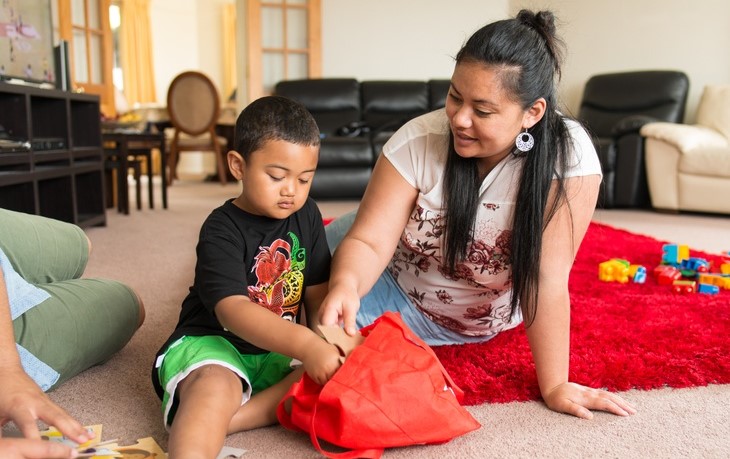
“The sector exceeded our expectations”
After being named as one of the recipients of our Innovation Fund, Tū Tonu are looking to increase their impact in their community.
The fund was created to develop innovative programmes that will help New Zealanders recover from injury faster. The calibre of the submissions was so impressive, we increased our funding to support more initiatives that we initially planned for.
Each recipient has been awarded $100,000 to support their innovative projects which will help improve outcomes for injured people.
“We feel humbled to have been awarded the Innovation Fund, given the number of applications and the high calibre of the other recipients,” says Allanah.
“This investment will provide us with the resource to be able to advance indigenous ideas and possibilities in the kaupapa Māori rehabilitation space.”
Megan Main is our Chief Executive. She says the goal for the Innovation Fund was to create an opportunity to reward and support innovation that will help people recover faster from injury.
“We know there are a huge number of innovative ideas out there that we could learn from and potentially help grow sustainably,” says Megan. “We asked for ideas that will help us accelerate our Health Sector Strategy, and the sector exceeded our expectations. We’re looking forward to working in partnership with all the recipients.”
Megan wants to thank the more than 100 health organisations that applied for the Innovation Fund.
“We need to recognise the time and effort that went into each submission and their contribution towards making this fund a success,” she says.
The ideas we received covered a range of proposals, including programme delivery re-design/process changes, holistic rehabilitation programmes designed specifically for Māori and Pasifika and data integration platform proposals.
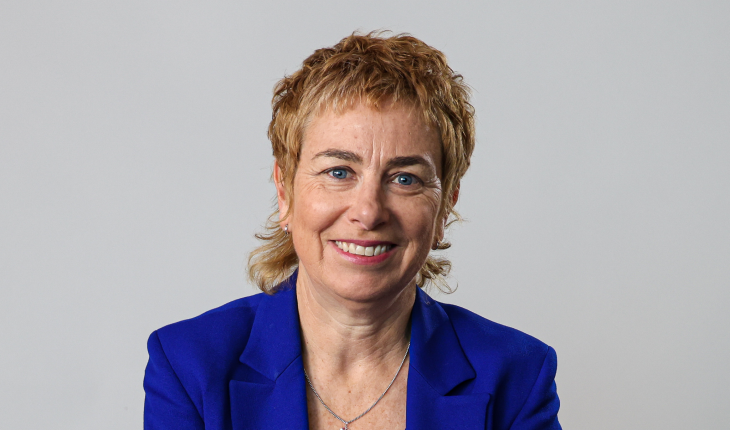
A moment in time
Allanah says the legislation changes around maternal birth injuries is a huge moment for Aotearoa.
Parliament passed the Accident Compensation (Maternal Birth Injury and Other Matters) Amendment Bill which expands cover to include specific maternal birth injuries as accidents.
From 1 October, wāhine/birthing parents who experience an injury during labour or childbirth are now eligible for support from ACC.
A change in the law means that ACC can now cover specific injuries birthing parents experience from the beginning of labour through to delivery of the pēpi (baby). ACC can also help if birthing parents have other mental or physical injuries that are caused by a covered birth injury.
“This is a hugely significant moment in time,” she says. “I can only speak for myself as a mum who was impacted by a birth injury. I had no idea what support was out there, and for the most part suffered at home alone.”
Allanah suffered a MBI with her daughter who is now 11 years old. She did not access any healthcare support for her injury at the time and the injury continues to impact her at times.
“Just to know that these changes are coming into effect and that more māmā are going to have support, it’s a relief. There is going to be increased awareness for all māmā of the types of support that is available. It’s important for māmā to know that support is available, and they do not need to sit at home in pain and feel alone.
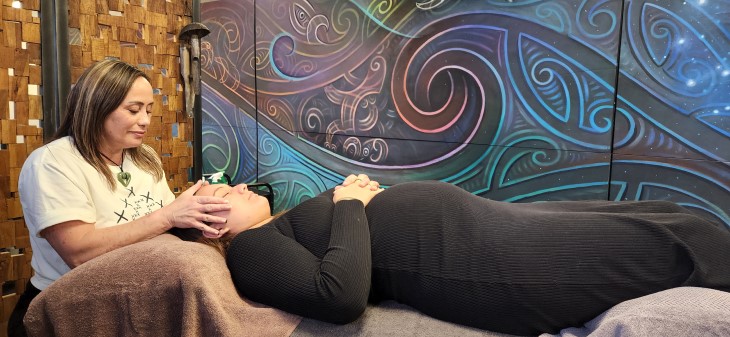
“We also know that when māmā is not well the whole whānau is affected. These additional supports will make a huge difference.”
Allanah says it is too early to be proud of their work. But they are looking forward to seeing the fruits of their labour in a new era for wāhine in Aotearoa. As a Māori organisation, we feel systemic change and innovation is necessary in order for nationwide organisations such as ACC to make a real difference for Māori and other indigenous groups,” she says.
“Entrenched service models have traditionally not served us well, so we are excited about this change.”
For more on the Innovation Fund:
For more on the MBI legislation changes:



